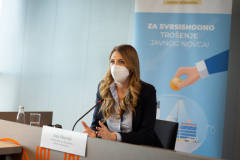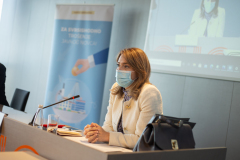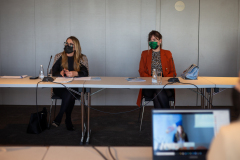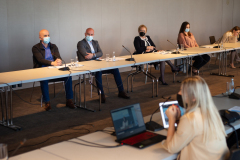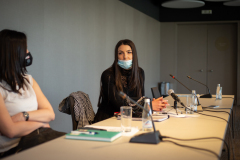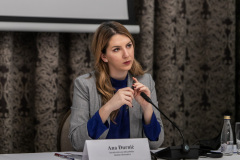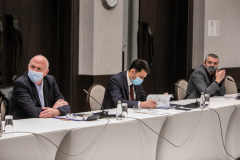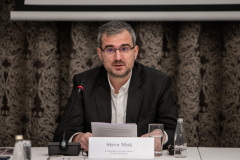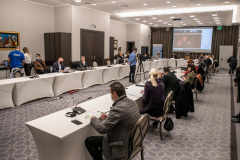The new Law on Public Procurement has brought obligations and more work to contracting authorities, has made procedures easier for the bidders and improved transparency and competitiveness of public procurement procedures.
This is stated by contracting authorities that participated in the meeting organised by Institute Alternative on the occasion of presenting the preliminary findings on the monitoring of the implementation of the new concepts from the Law on Public Procurement (PPL). Implementation of the new PP Law started on July 7, 2020.
They estimate that the new PPL has improved the system and brought the Montenegrin legislation in the field of public procurement closer to the legislation of the European Union.
The new PPL brought a number of novelties, and the implementation of new mechanisms and concepts of the Law in the second half of 2020 were the subject of monitoring by the Institute Alternative on a sample of all ministries and municipalities.
The initial six months of implementation showed a lack of consistent implementation of some of the provisions from the Law and the secondary legislation, and the potential for the new concepts, such as market analysis, to bring more damage than benefits to the public procurement system. Inadequate planning and failure to deliver on the plans remain the key weaknesses in the management of this segment of public spending.
For the most part, the Rulebook on the method of conducting simple procurement resolved the issues attached to low-value procurement. Still, in practice, these procurement must be kept under the constant scrutiny of the Public Procurement Inspectorate, in order to ensure consistent application of the rules. Furthermore, it is very important to prevent abuse of simple procurement and to use them for the purpose of simplified procedures, faster procurement and lower procurement costs.
Unfortunately, control of contract performance failed to deliver on the announcements made by the Ministry of Finance, since contract performance reports contained very few or no new data when compared with the contents of the contract. Inadequate monitoring of contract performance, both internal and external, is another chronic shortcoming of the public procurement system.
The aim of the meeting was to present to the contracting authorities included in the research preliminary findings on the monitoring of the implementation of the new mechanisms and concepts under the PPL – market analysis, most economically advantageous tender as the sole evaluation criterion, report on contract performance, simply procurement, as well as planning and execution of the budget for public procurement.
The meeting was also attended by representative of the Directorate for Public Procurement Policy of the Ministry of Finance and Social Welfare, as an institution that performs institutional monitoring of the public procurement system in Montenegro.
The meeting brought together almost 50 participants via the Zoom platform and live, in compliance with measures to combat the Corona virus.
Watch the experiences of the contracting authorities and the main conclusions from the meeting in a short video (in Montenegrin):
The meeting with contracting authorities was organised within the project “For the Better Use of Public Money!”, implemented by the Institute Alternative with the financial support of the Embassy of the Kingdom of the Netherlands. The opinions and views expressed in this video do not necessarily reflect those of the Embassy.


